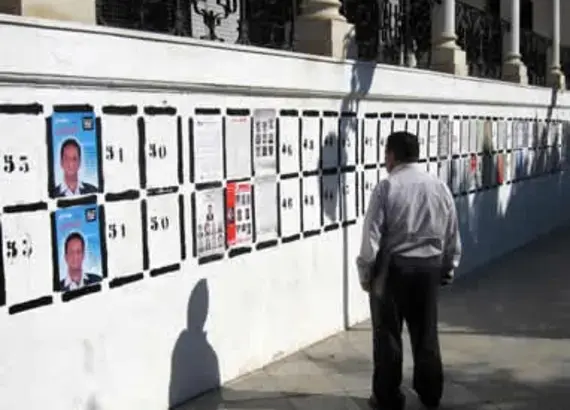
Success Story
New Public Opinion Research Finds Growing Frustration Across Tunisia
Tunisians remain committed to the democratic process but are becoming increasingly disappointed with their government’s perceived lack of accomplishments, according to the findings of a new round of NDI focus group research.
Participants view the interim National Constituent Assembly — tasked with drafting a new constitution — as failing to meet expectations, the research found, and they are becoming increasingly frustrated with elected leaders, who are seen as lacking the skills and experience needed to solve pressing economic and security issues.
These are just some of the findings from NDI’s research, conducted June 1-11 with funding from the U.S. State Department’s Middle East Partnership Initiative (MEPI). The research adds to five previous rounds of public opinion studies that the Institute has conducted since the ouster of autocratic President Zine El Abidine Ben Ali that track citizen attitudes toward democracy, the country’s political transition and political parties. Key findings from this round of research include:
- Citizens identify job creation and economic development as top priorities and want political leaders to address those issues. Women and young people are most concerned about the rising cost of living.
- Tunisians are not convinced that political leaders are able to or interested in solving citizens’ problems; however, citizens remain committed to democratic processes.
- Citizens continue to seek avenues for political participation between elections and do not view political parties or civil society as effectively engaging with them.
- Social media and word of mouth remain Tunisia’s most trusted sources of information, while views on the role of traditional media vary.
NDI presented the latest findings to leaders from Tunisia’s ruling and opposition political parties to help them improve their outreach to citizens. Using data from the focus groups, Institute staff worked with parties on message development and constituent outreach strategies as they prepare for anticipated March 23 national elections.
The Institute also collaborated with two civil society organizations, the Ofiya Center and Youth Without Borders, to organize a series of roundtable discussions in Jendouba, Siliana, Mahdia, Tataouine, Tozeur and Kairouan. The six sessions, which gathered more than 200 local party members and civic activists, shared research findings and gave attendees a chance to talk about issues raised in the research. They then formed policy recommendations for local and national leaders. NDI began working with both organizations in the run-up to last October’s constituent assembly elections, and both organizations have been organizing civic education initiatives since then. NDI and its civic partners will present findings from the local roundtables to a national audience at a town hall meeting in Tunis in early September.
Read more:
- Read the focus group report»
- Tunisian women worry gains made during revolution may be slipping»
- Tunisians hold high expectations for jobs, constitution, opinion research finds»
- Tunisians want politicians to address jobs, security as first democratic elections approach»
- Opinion research shows Tunisians concerned about the future»
- Focus groups in Tunisia reveal young people's hopes for democratic transition»
Published August 8, 2012



